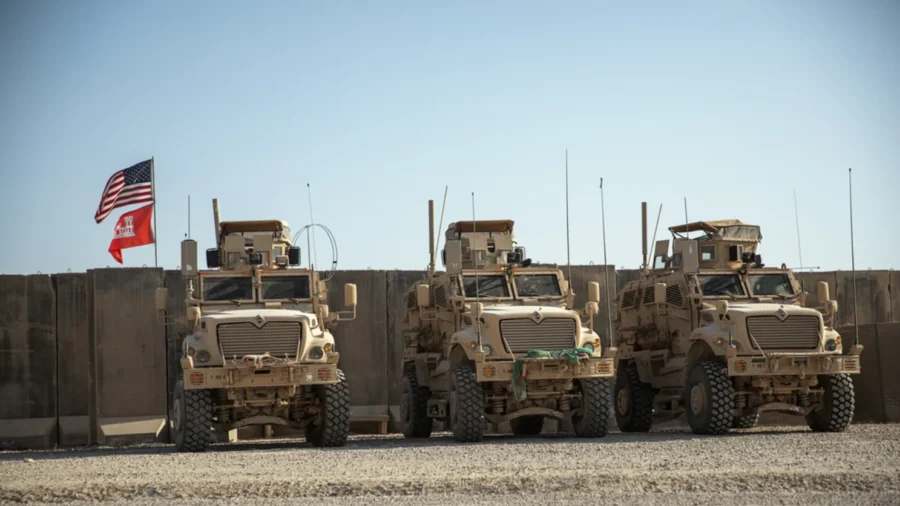In a joint statement released on Sept. 27, the United States and Iraq announced plans for a transition from the current U.S.-led global coalition fighting ISIS to a bilateral security partnership.
The Biden administration and Iraqi leaders said that over the next 12 months, the coalition’s military mission in Iraq will transition to a new phase aimed at supporting Iraqi forces while maintaining pressure on ISIS, with U.S. troops leaving some bases they have long occupied during a two-decade military presence in the country.
The statement, issued after what both parties described as nine months of intense discussions between the U.S.–Iraq Higher Military Commission (HMC) and coalition partners, outlines a plan for concluding the coalition’s military mission by September 2025.
The Pentagon has yet to provide details on how many of the 2,500 U.S. troops still serving in Iraq will remain or if there will be a full withdrawal.
“I think it’s fair to say that our footprint is going to be changing within the country,” U.S. Deputy Pentagon Press Secretary Sabrina Singh said during a press conference on Friday. She provided no details on troop numbers.
As the U.S. and Iraq move forward, the strategic relationship between the two nations remains central to their defense planning, the statement said.
Singh emphasized that the United States is not withdrawing but rather adapting its mission in Iraq, focusing on a shift from a multinational coalition under Operation Inherent Resolve to a bilateral partnership that underscores the progress made in fighting ISIS.
The statement confirmed that while the military mission in Iraq will conclude by September 2025, the coalition’s work in Syria will continue until at least September 2026, depending on conditions on the ground.
This extended mission is aimed at preventing ISIS from regaining a foothold in the region, particularly in northeastern Syria.
“We remain fully committed to the defeat of ISIS,” a senior Pentagon official said in a statement on Sept. 20, noting the progress made over the past decade in dismantling ISIS’s territorial control in both Iraq and Syria.
However, the official warned that ISIS remains a persistent threat.
“With ISIS, you can often say they’re down, but they’re never quite out,” the official said.
The Higher Military Commission will oversee the transition, developing procedures to protect coalition advisers in Iraq during the shift to the bilateral partnership.
Iraq reaffirmed its commitment to safeguarding foreign military advisers, emphasizing that all foreign forces are present at the Iraqi government’s invitation, something Singh also mentioned in her remarks.
“We are in Iraq at the invitation of the Iraqi government and our partnership has led to the success of diminishing ISIS from what it was 10 years ago to where it is today,” Singh said.
Both countries stressed their commitment to advancing security cooperation, consistent with the U.S.–Iraq Strategic Framework Agreement and the Iraqi Constitution.
The transition aligns with discussions held earlier this year during Iraqi Prime Minister Mohammed Shia Sudani’s visit to Washington and subsequent high-level dialogues.
Both governments emphasized their mutual commitment to a stable, secure, and peaceful Iraq, laying the groundwork for a long-lasting partnership.
The Associated Press contributed to this report.
From The Epoch Times

